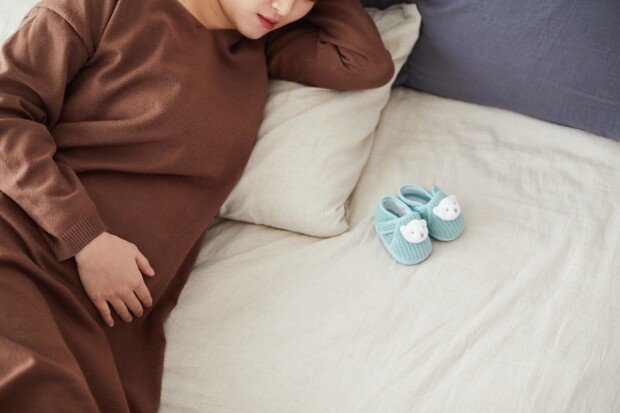More women in their 20s wish to have children
More women in their 20s wish to have children
Posted October. 15, 2024 08:28,
Updated October. 15, 2024 08:28

A recent survey showed that the ratio of women in their 20s and 30s willing to marry and have children has increased amid recent reports of birth rates possibly rebounding after hitting a bottom low. The National Statistical Office announced last month that the number of births in July was 20,601, a 7.9% increase compared to the same month last year, the most significant increase in 17 years.
The Low Birth Rate and Aging Society Committee commissioned Korea Research to conduct a survey of 2,592 men and women aged 25 to 49 from August 31 to September 7. The results showed that 48.1% of women aged 25 to 29 responded that they felt they must have children. In a survey conducted between March 29 and April 3, 34.4% gave the same answer, up by 13.7 percentage points. The ratio of women in their 30s who said they needed children also increased by 6 percentage points from 51.7% to 57.7% over the same period. Among all respondents, the percentage of respondents who answered ‘I must have children’ also increased from 61.1% to 68.2%.
Among individuals without children, the proportion of those who felt inclined to have children increased by 5.1 percentage points from 32.6% to 37.7%. In particular, the intention to have children among those who are married but do not yet have children was found to be 50.7%, an increase of 8.3 percentage points compared to the survey in March and April.
Surveys also showed that people had increasingly positive perceptions toward marriage. Among unmarried women in their 30s, 60% responded that they “intended to marry,” an increase of 11.6 percentage points compared to the March and April survey. Among singles, the response of ‘intending to get married’ also increased by 4.4 percentage points from 61% to 65.4%. “Such positive perception appears to be influenced by the government announcing new measures to address low birth rates in June and by companies expanding support for childbirth and childcare,” said an official with the Low Birth Rate and Aging Society Committee.
84.4% of respondents said ‘promoting flexible working during childcare’ was the most essential policy to tackle low birth rate challenges, followed by ‘improved access to pediatric medical services’ (83.0%) and ‘better access to emergency care services’ (81.3%).
However, experts point out that the survey alone is not enough to conclude that the perception towards giving birth has changed significantly. “It is crucial to monitor ongoing trends as results may vary depending on respondents. The role of the government and companies in fostering an environment to balance work with childcare is critical for people to have children,” said Seok Jae-eun, a professor of social welfare at Hallim University.
Sung-Min Park min@donga.com
Headline News
- Joint investigation headquarters asks Yoon to appear at the investigation office
- KDIC colonel: Cable ties and hoods to control NEC staff were prepared
- Results of real estate development diverged by accessibility to Gangnam
- New budget proposal reflecting Trump’s demand rejected
- Son Heung-min scores winning corner kick







